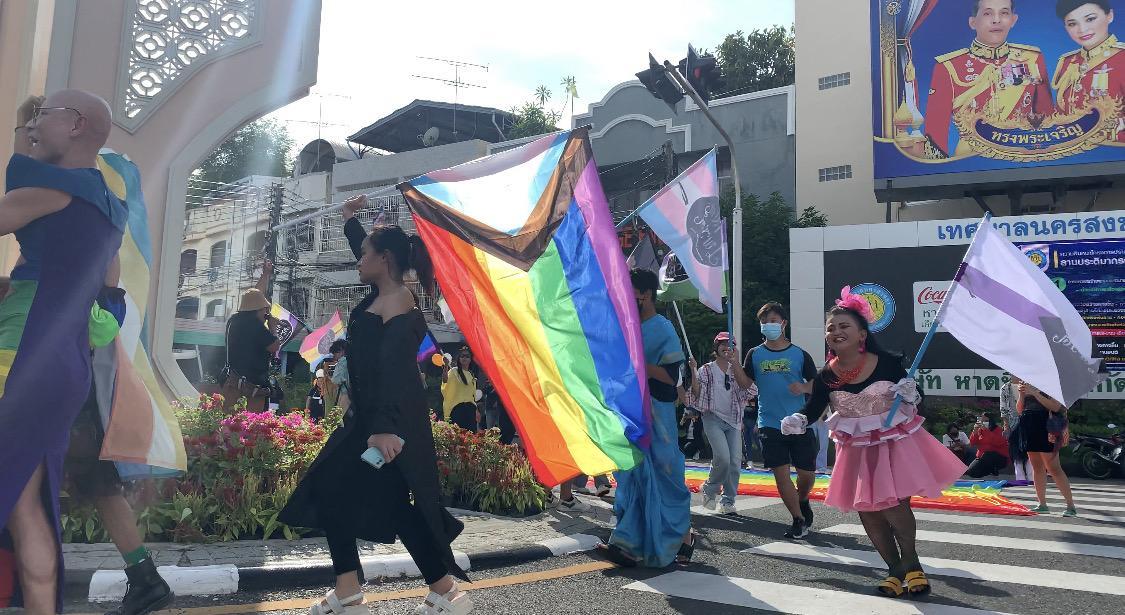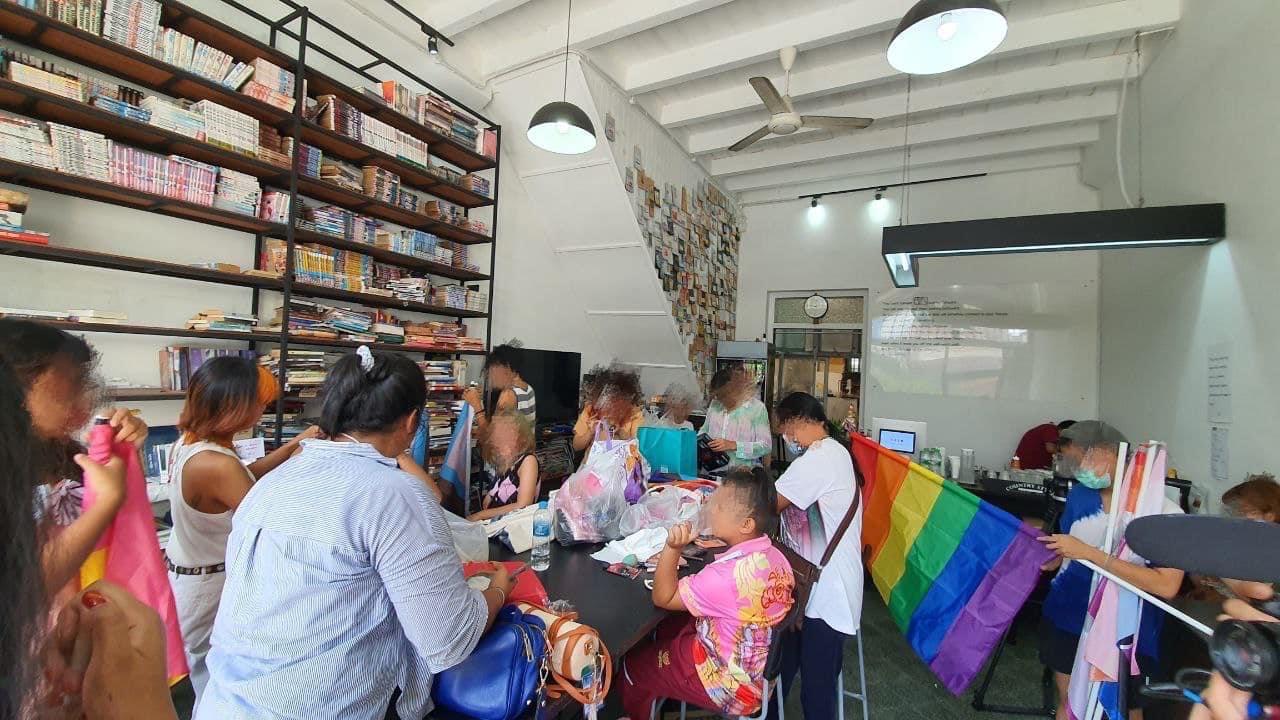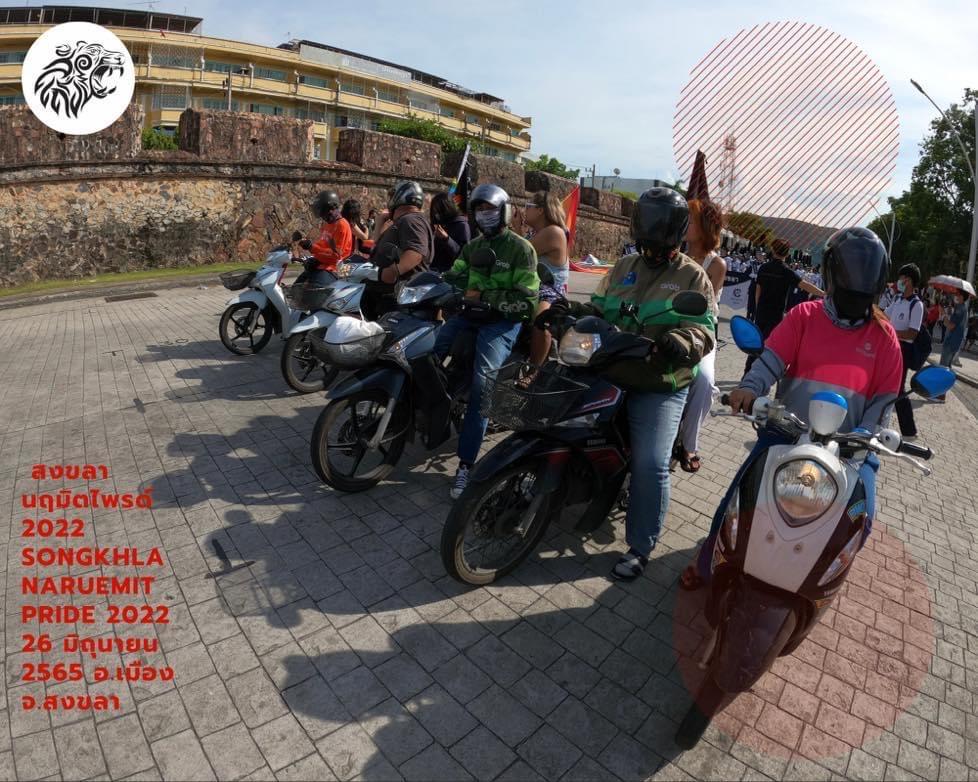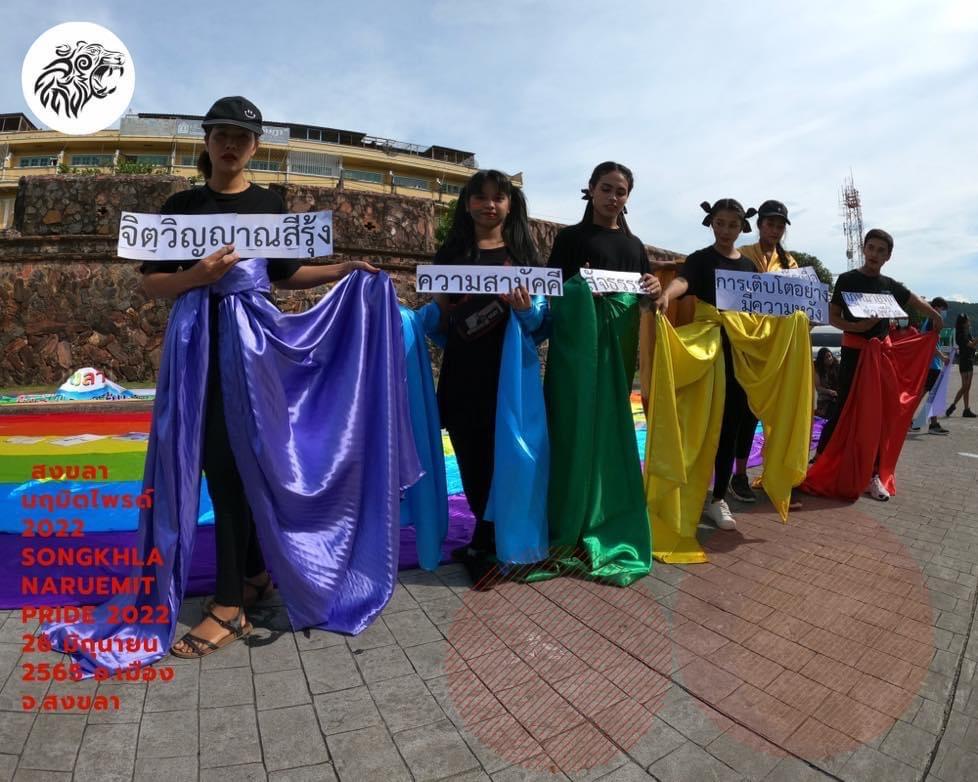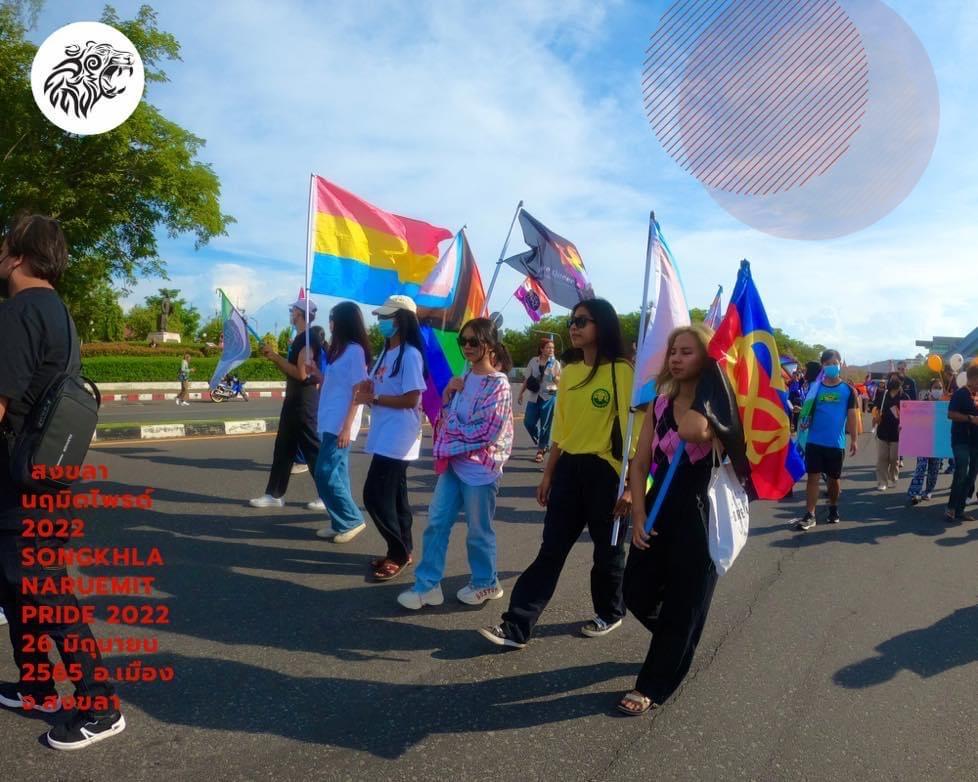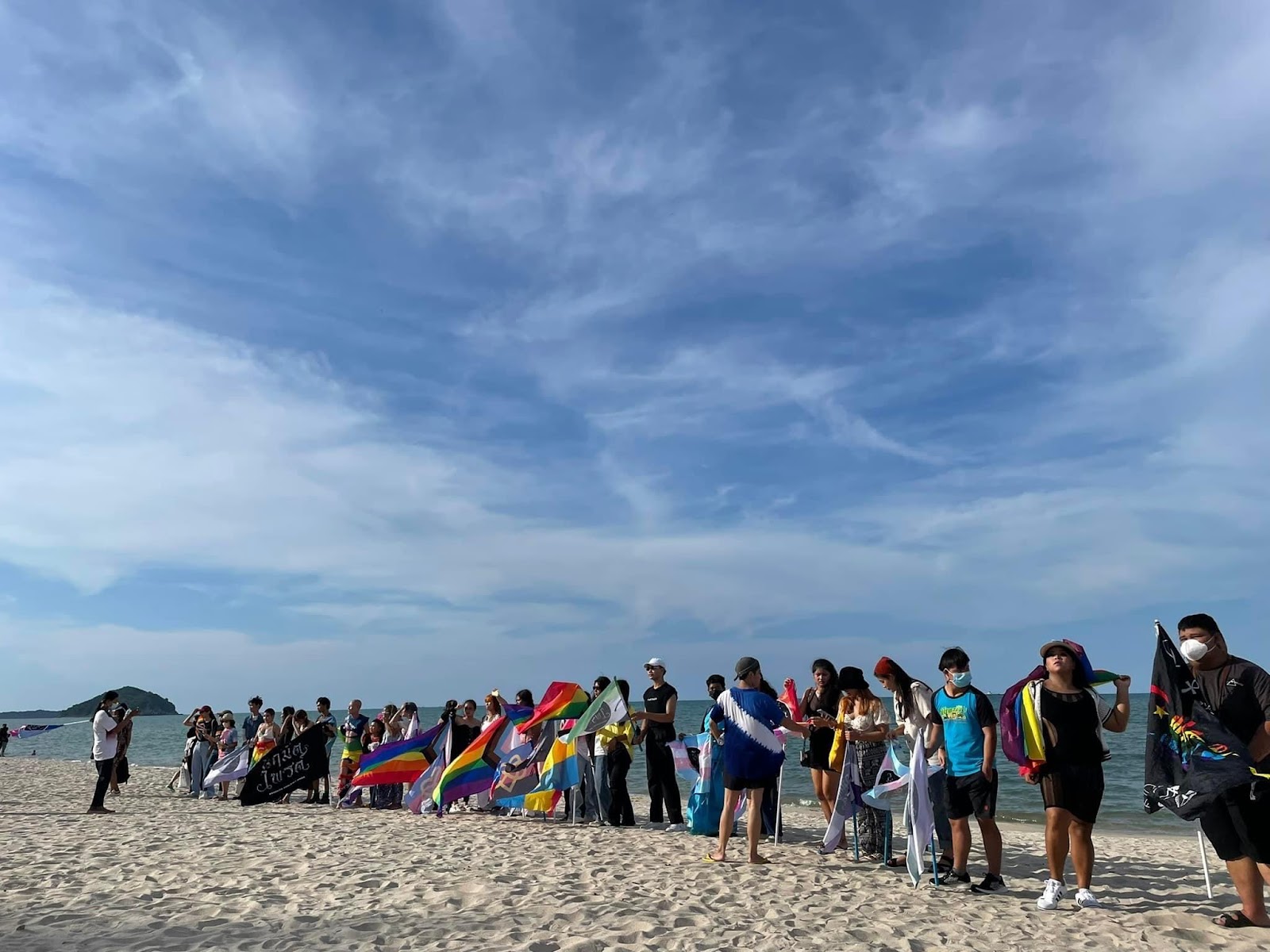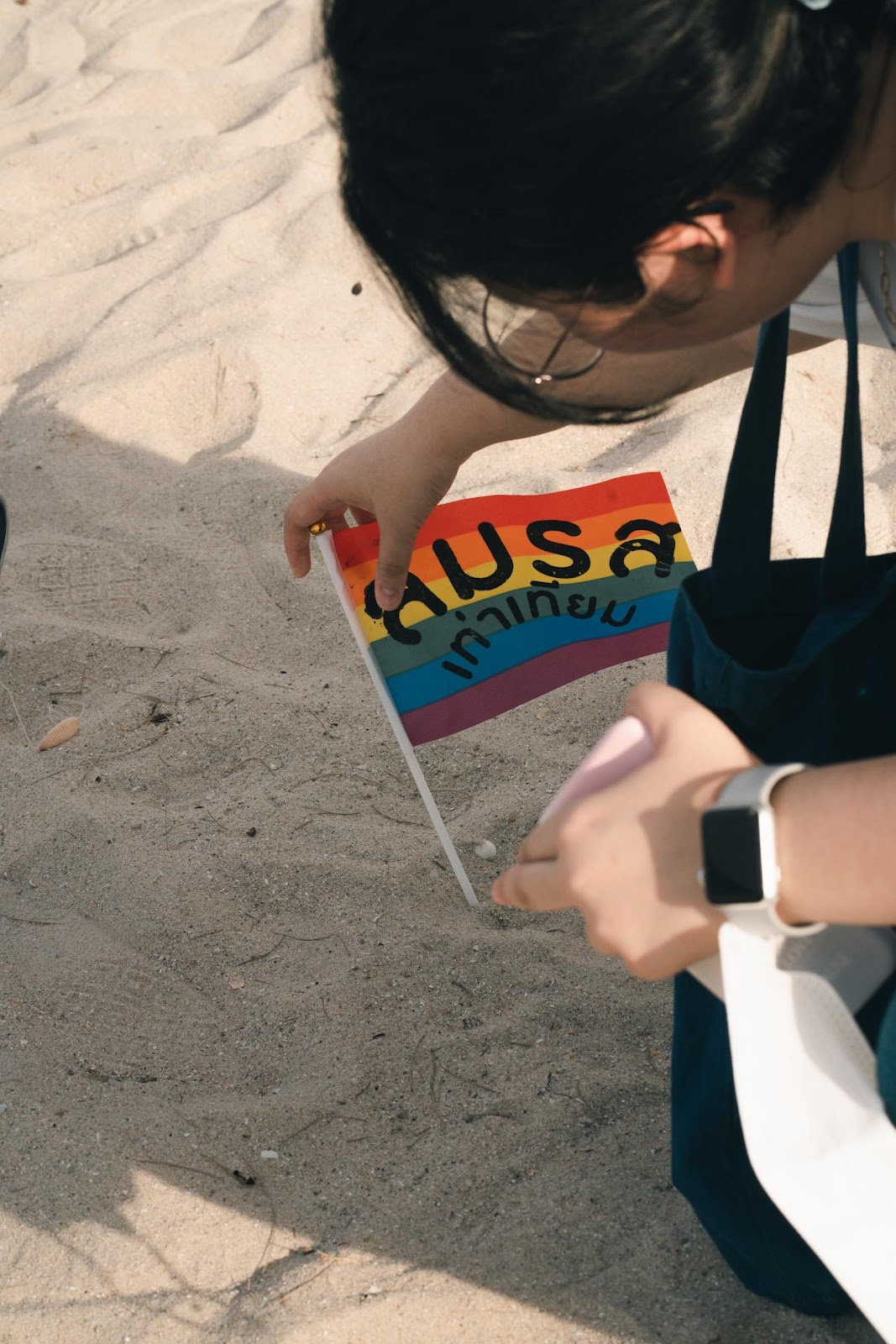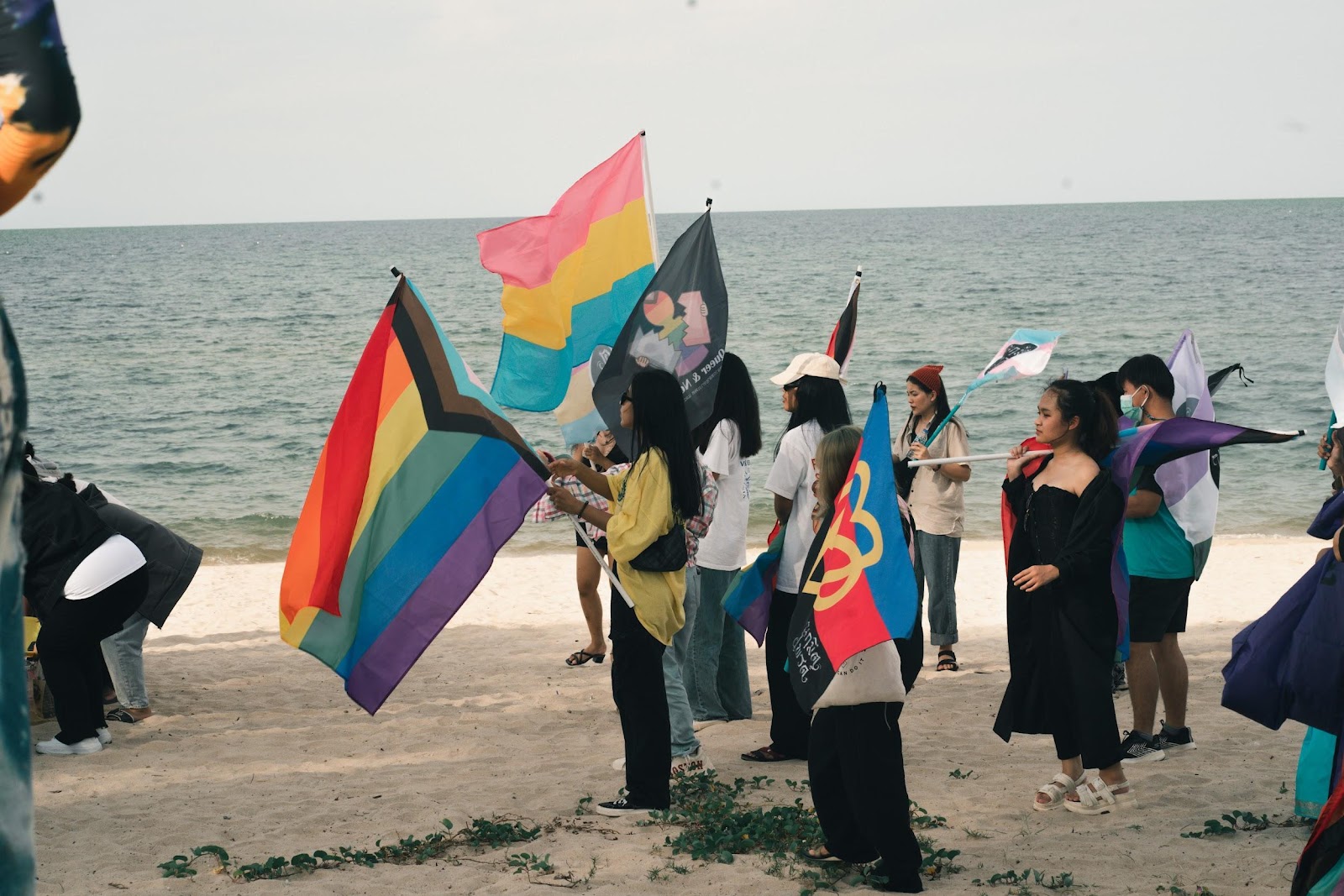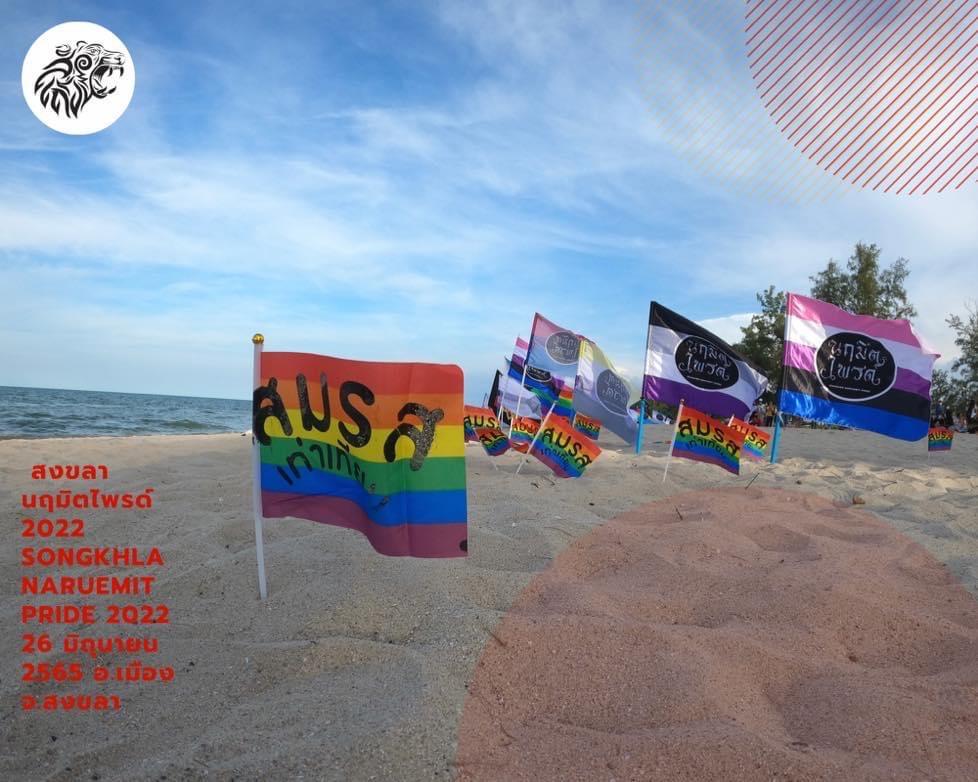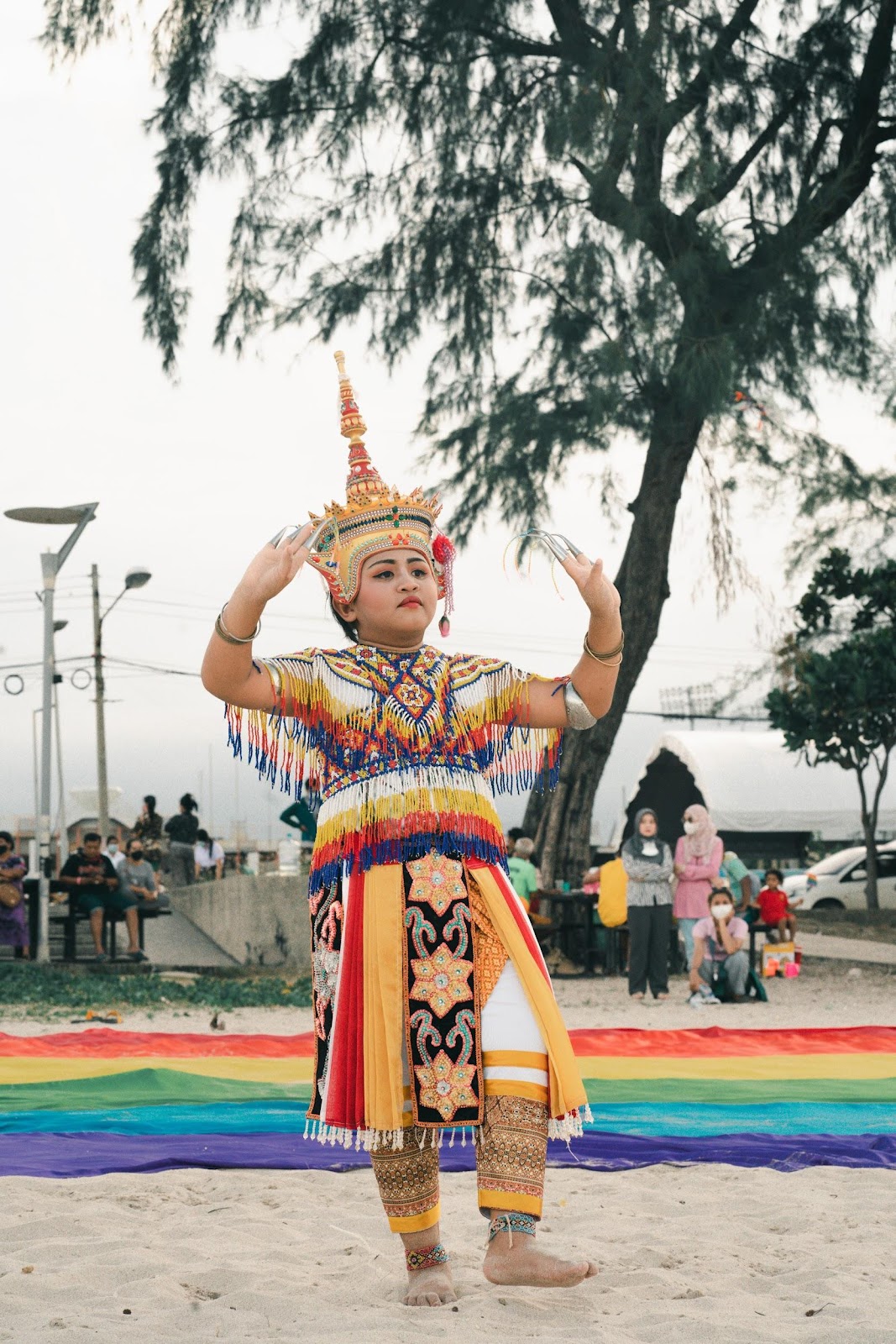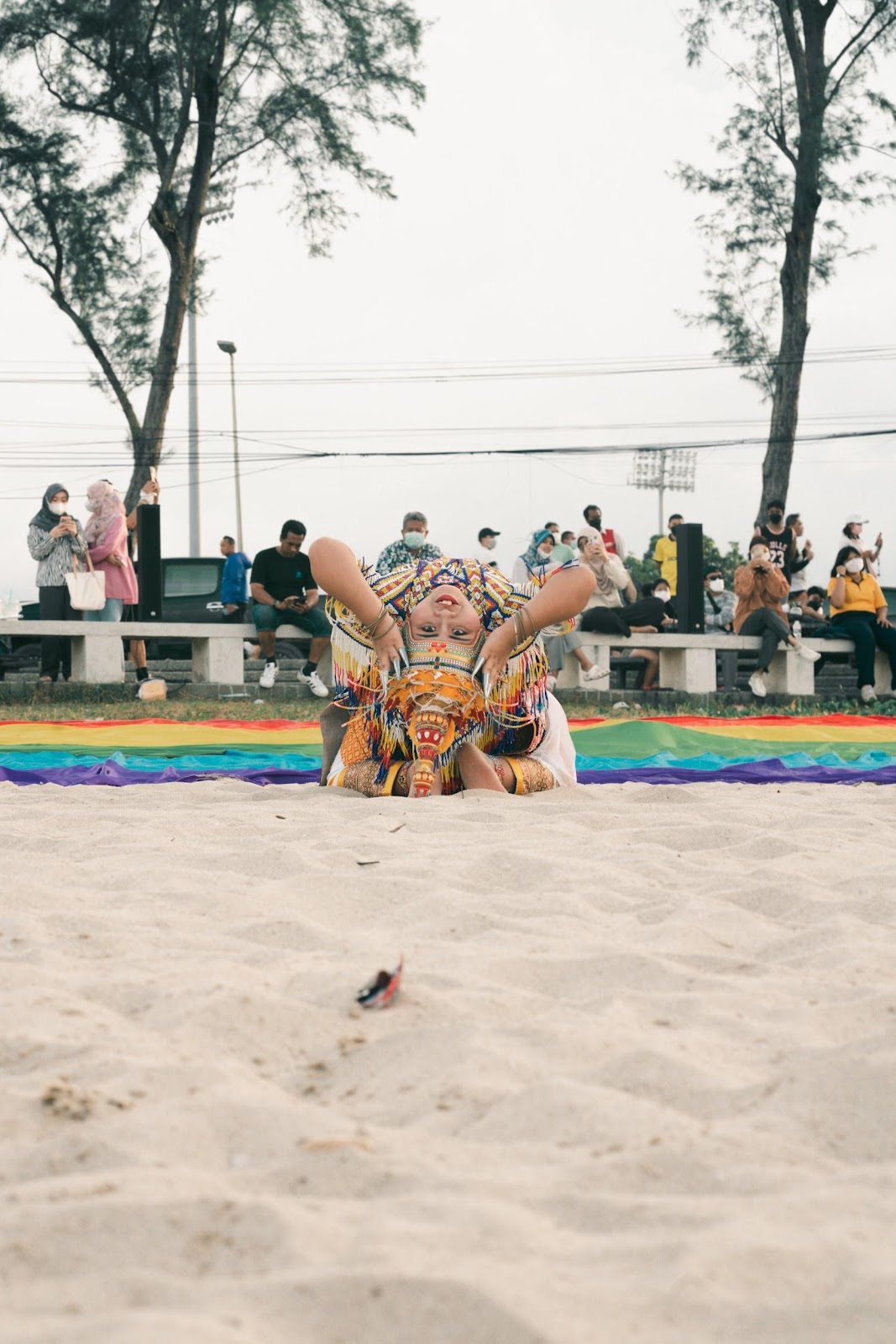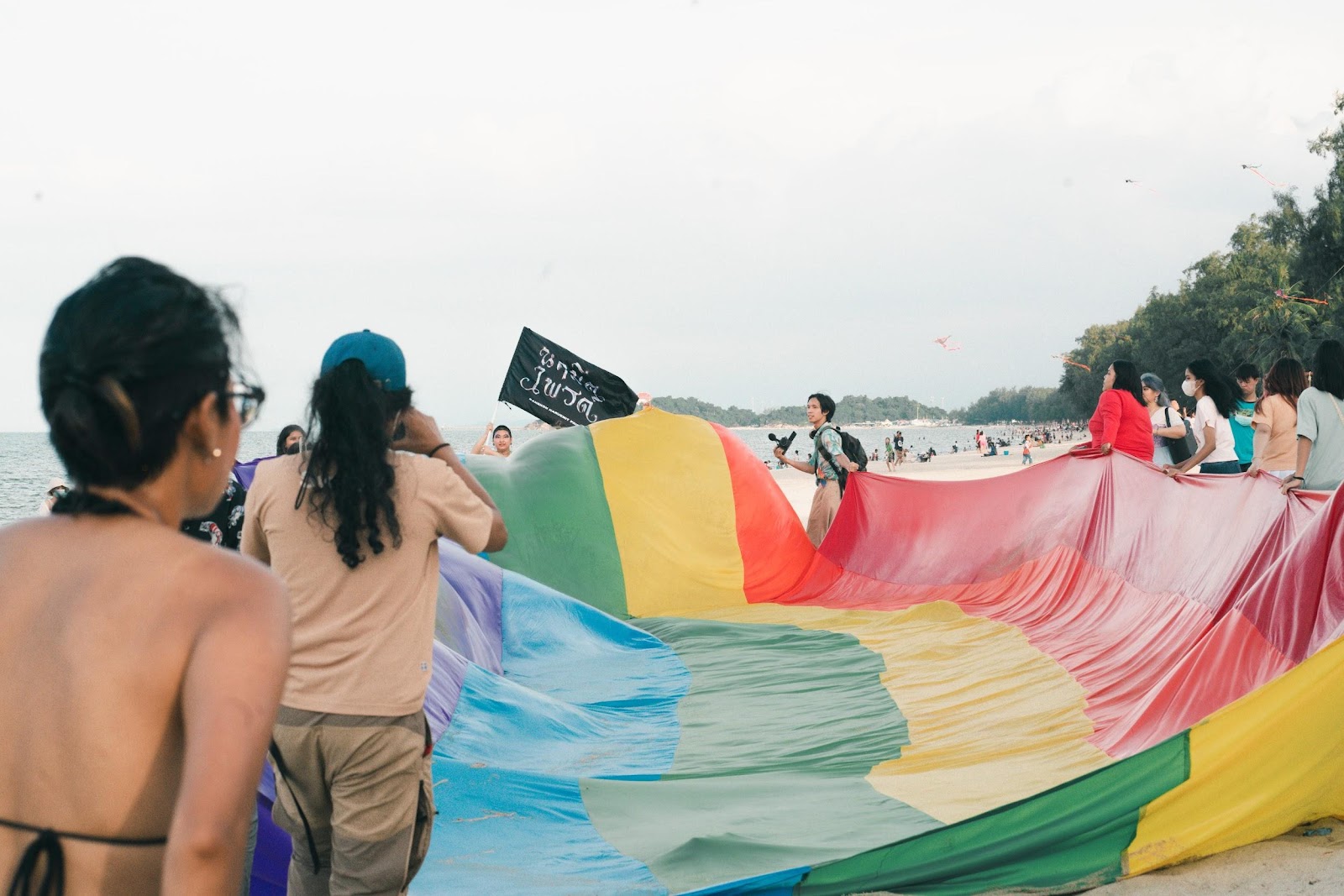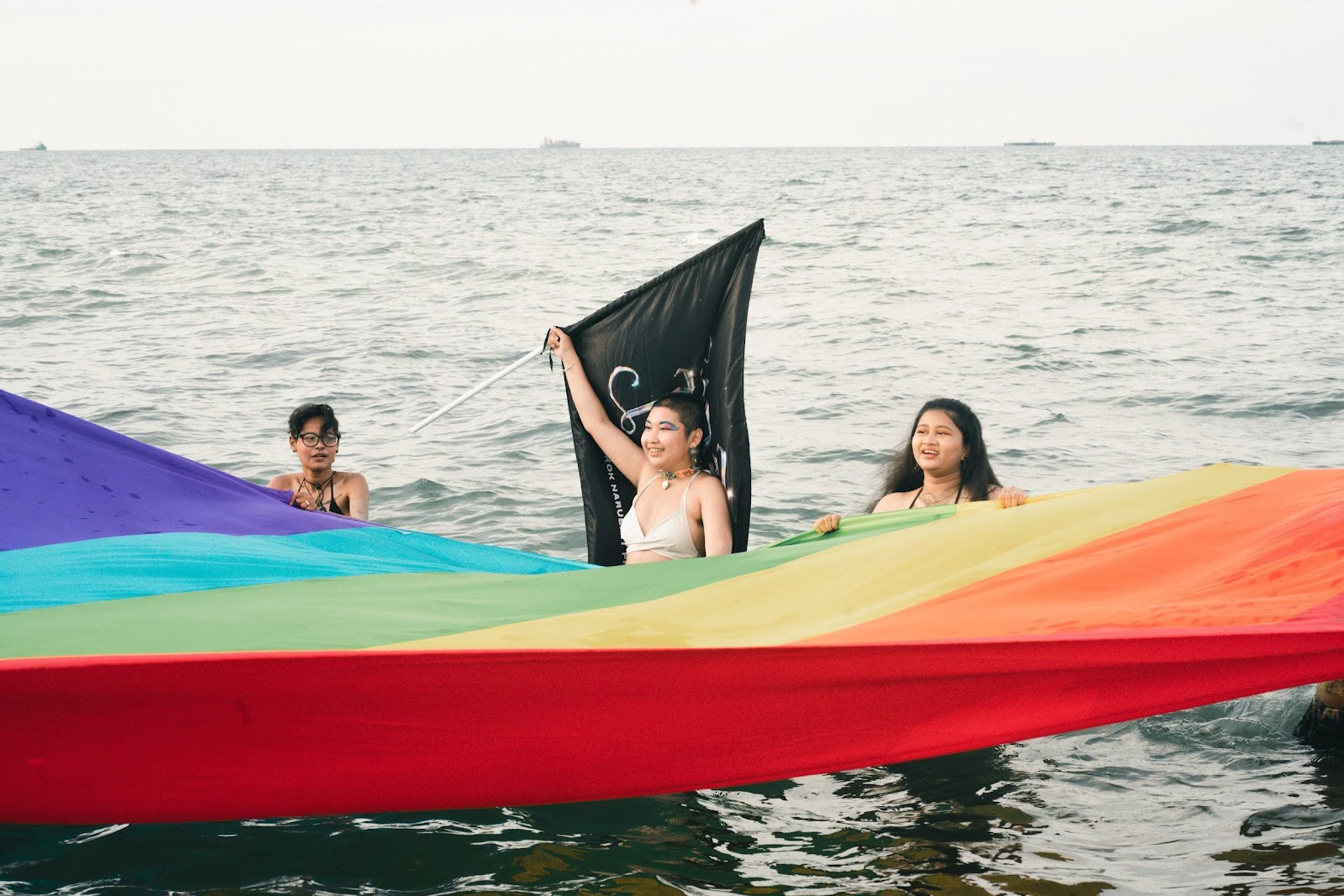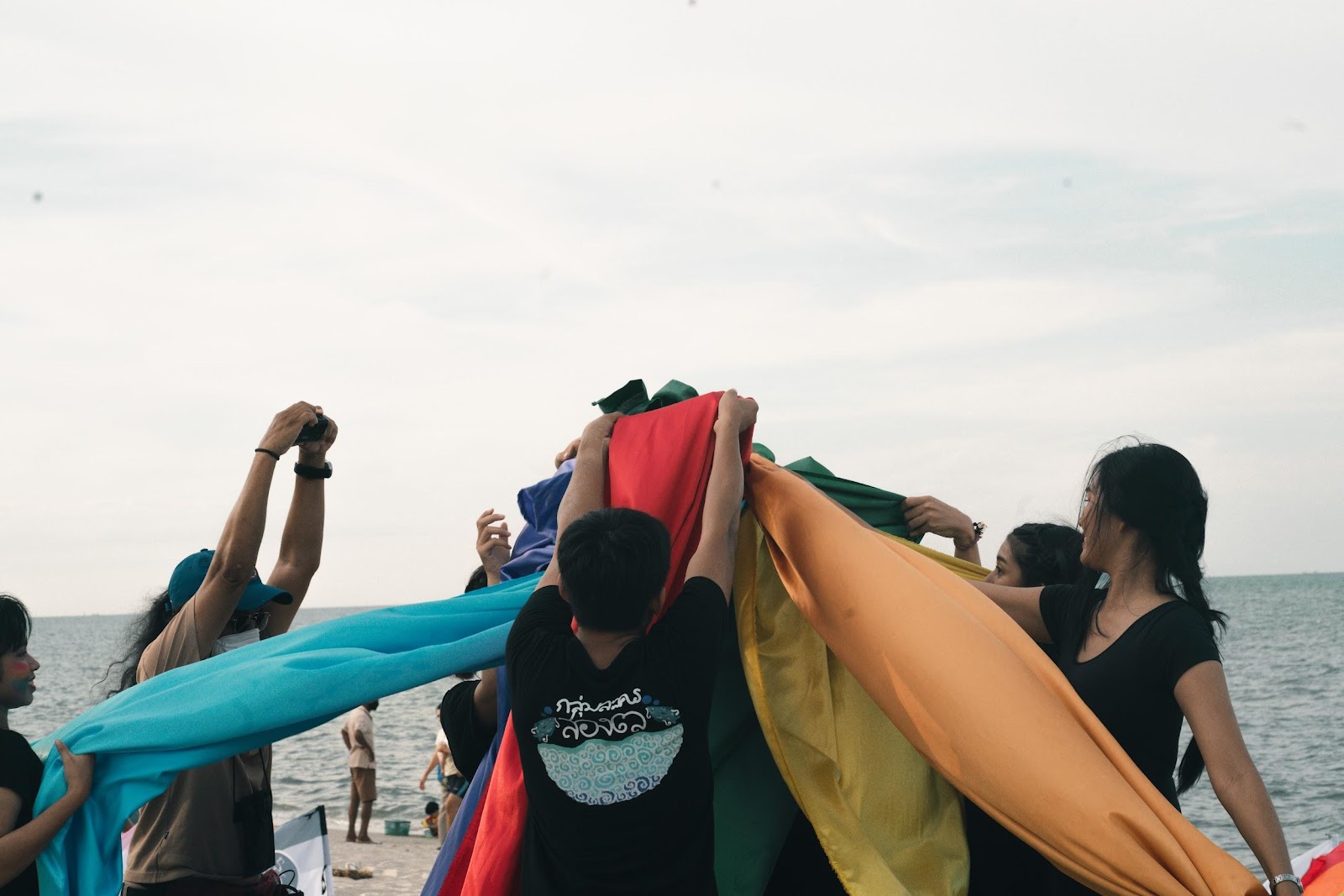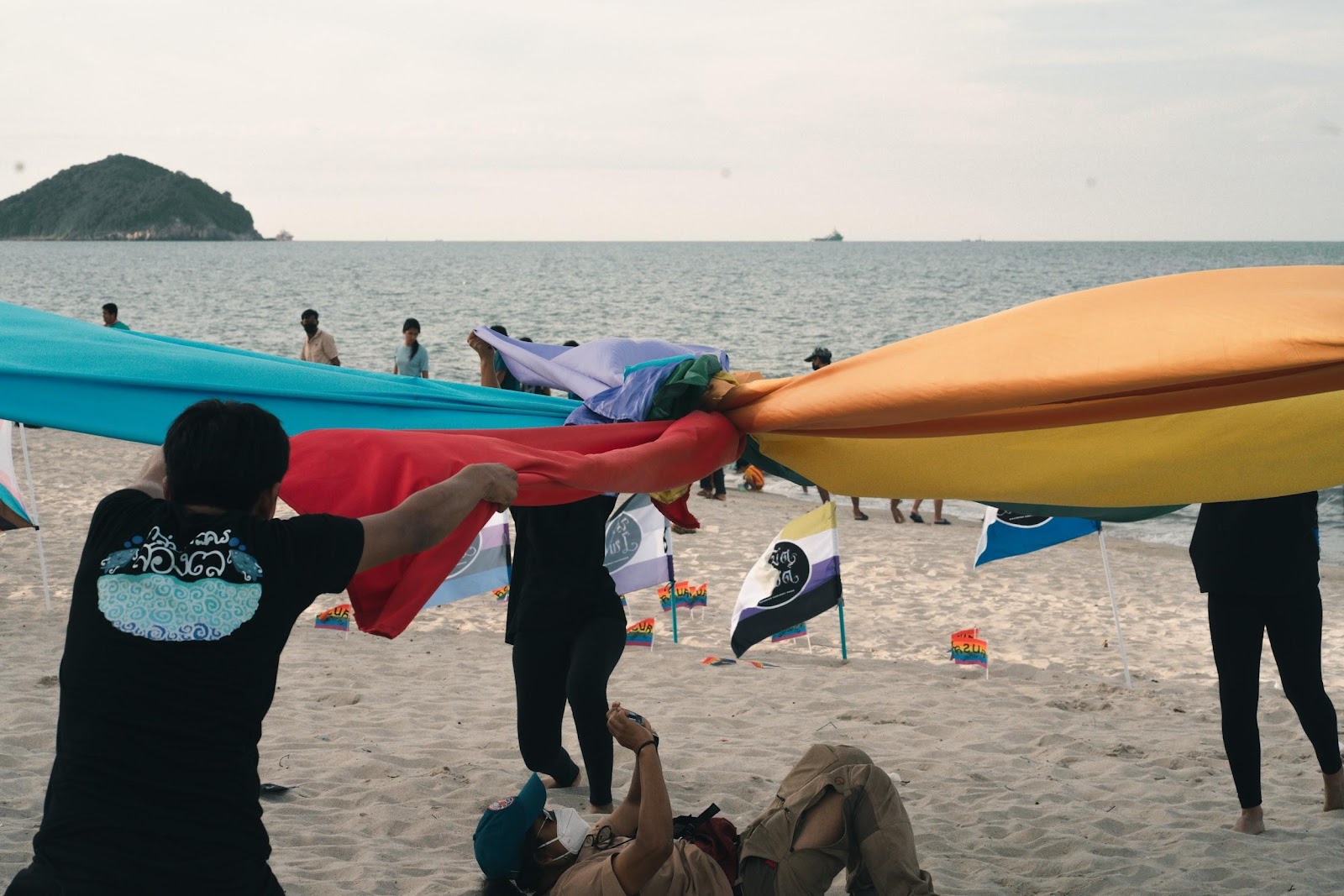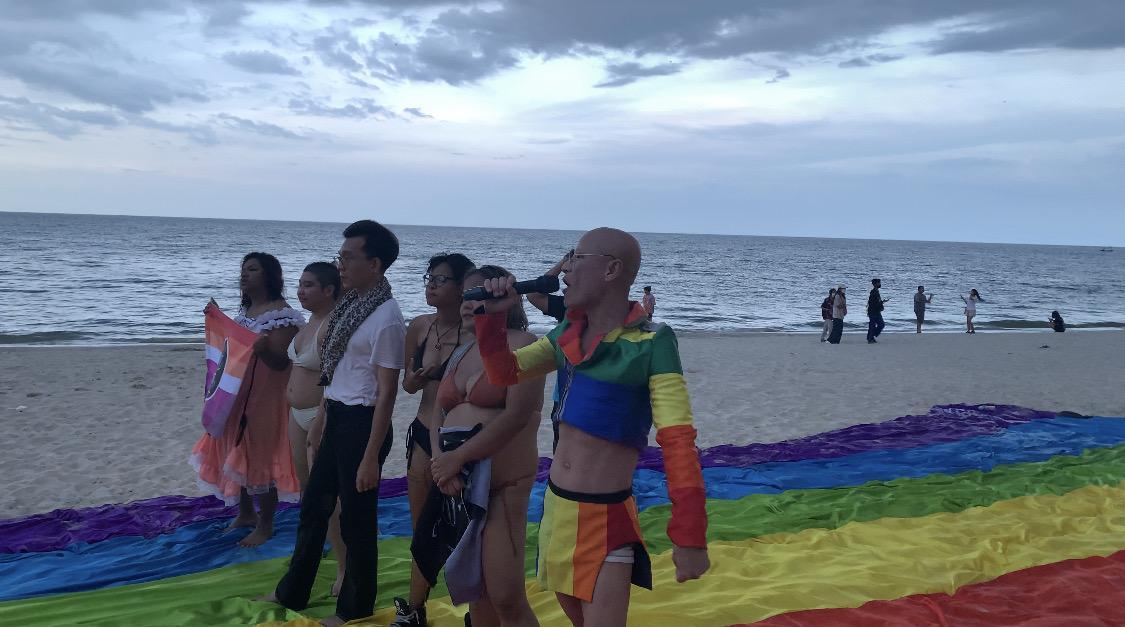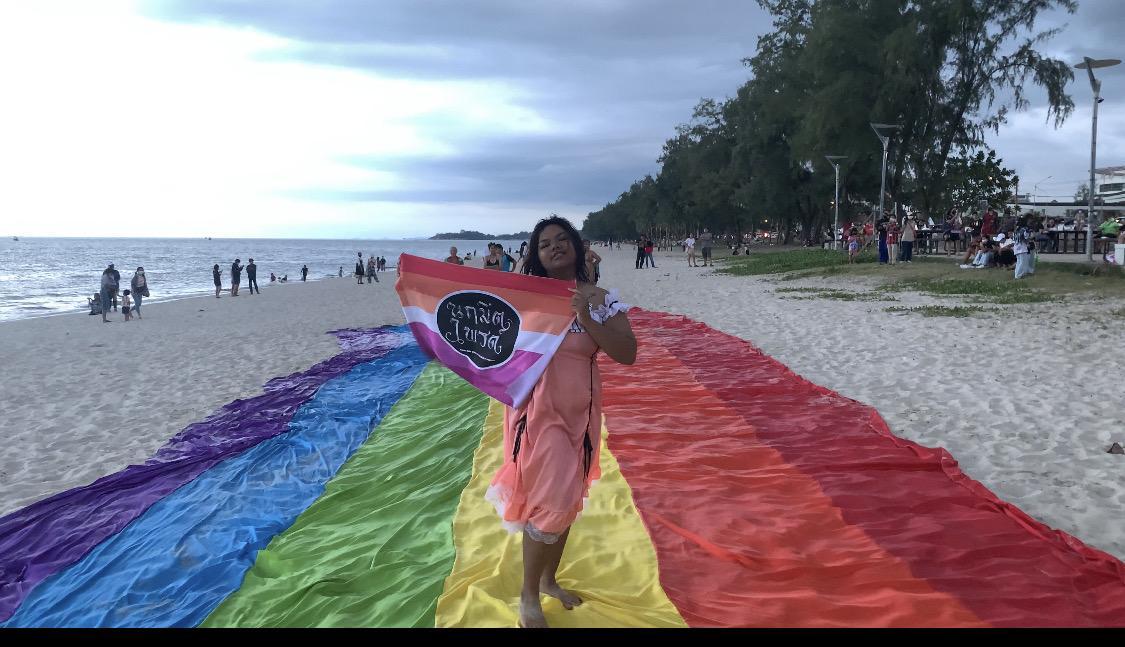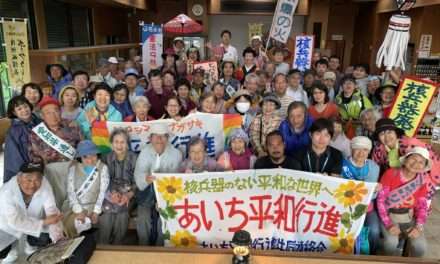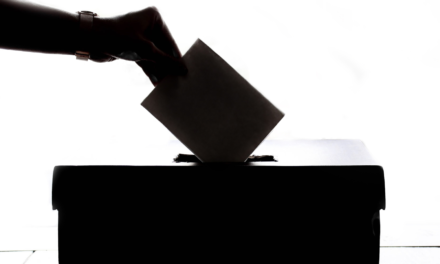Introduction by Kheetanat Wannaboworn
Photos by Feminist Mermaid
Thailand recently made a historic move on gender equality and social justice. In mid-June, 2022, the House of Representatives passed the first reading of the Move Forward Party’s Marriage Equality Bill and the Government’s Civil Partnership Bill to pave way for legal recognition of same sex unions.
Earlier in March this year, the Cabinet once rejected the Marriage Equality Bill, stating that it was similar to the Cabinet’s earlier approval of the Civil Partnership Bill. Later, the Parliament also deferred debate and vote on the Bill, creating fears that the draft law will not be accepted.
Despite the Government’s claims on the similarities in terms of the legal protection, there are major differences between the two proposed laws. The Marriage Equality Bill, on one hand, will seek to equally grant the same rights enjoyed by heterosexual and same sex married couples. On the other hand, the Civil Partnership Bill will grant some rights, but not all, and same sex unions would not be regarded as marriages.
The Marriage Equality Campaign has been active in Thailand for many years, notably the campaign calling for a revision of Section 1448 of the Civil and Commercial Code, or the “Marriage Law,” which received more than 350,000 supporters. As the Move Forward Party helped bring the Marriage Equality Bill into the parliament, the rise of youth-led mobilizations from 2020 also solidified the call for policy change, alongside other calls for rights protection including the right to freedom of expression.
While civil society largely supports the groundbreaking Marriage Equality Bill, the Parliamentary Committee of the law, however, will use the Civil Partnership Bill as basis to examine the second and final readings in the House of Representatives.
Prior to the parliamentary session, in early June, thousands of activists and supporters of marriage equality joined the Bangkok Naruemit Pride 2022 to strengthen their solidarity towards gender justice and marriage equality. The public engagement in the parade has inspired other Pride Parades outside Bangkok to spread awareness and garner wider attention on the passing of the law and recognition of marriage equality.
On June 26, 2022, Feminist Mermaid (or Southern Feminists Liberation) – a group of young feminists and activists in the South of Thailand, organized Songkhla Naruemit Pride 2022. The Pride Parade was the first of its kind in Songkhla province and Southern Thailand. All sectors including local administrative offices, business communities, schools and education institutions, labor unions, and the general public were welcomed and took part in the initiative.
This photo essay is a series of photos documenting the timeline of the Songkhla Naruemit Pride, with photo credits and stories from the Feminist Mermaid.
The Pride Parade crews first gathered at ‘Dot Cafe.’ The cafe is an open space for LGBTQIAN+ community. The preparation of the parade also facilitates a meeting and networking moment for young activists and gender equality advocates in a relaxing ambiance.
The Songkhla Naruemit Pride started to assemble at the Old Wall in Songkhla city around 3pm. The Southern Freedom Rider Union, a group of delivery platform workers, was the first to set off the parade.
Woranari Chaloem Songkhla School, one of the oldest high schools in the city, joined in with their Marching Band.
Before the parade started, activists and supporters of marriage equality law including youth, students, representatives from political parties, and the general public announced their collective support for the Marriage Equality Bill over the Civil Partnership Bill. The banner reads “Songkhla People support Marriage Equality Bill, No! Civil Partnership Bill.”
The Parade reached Songkhla City Town Clock at 3.30pm. There was an activity for SOGIE supporters to walk around the Town Clock with rainbow flags, as a mark that Songkhla City and the Southern region is a safe space for LGBTQIAN+ community.
Hundreds of supporters lively celebrated the Parade on route to Chalatat Beach. The distance of the parade was 1448-metre, resembling the Section 1448 of the Thai Civil and Commercial Code. Along the parade, supporters shouted “Marriage Equality” and “Sex Work is work” to pronounce their support for gender equality and justice.
At Chalatat Beach, the Parade laid down the Rainbow and LGBTQIAN+ identity flags on the beach and started other celebration activities for the first step of the legal struggles in the Parliament.
A Pride supporter ran a poll “What do Songkhla people prefer between the Marriage Equality Bill and Civil Partnership Bill?”
“Trans Kid” – a group of young trans activists presented the Manorah Dance. The dance usually performed at important festivals. The presence of the performance here symbolizes the broadening of cultural landscape to embrace gender identities. It was also an opportunity to advocate child’s rights and rights of LGBTQIAN+.
Songkhla Naruemit Pride activists and supporters held the Rainbow flag in the sea as a remembrance for the continue struggles on social and gender justice and the guarantee of safe space for LGBTQIAN+ community in the South.
Art Performance represented the seven colors of the Rainbow, according to the Naruemit Pride:
Red is Just Law for All;
Orange is Social Welfare for All Gender Identities;
Yellow is Life’s Prosperity;
Green is Truth;
Blue is Solidarity;
Purple is Rainbow’s Spirit.
Songkhla Naruemit Pride ended with “Sex work Fashion Show” to advocate for the rights of sex workers. Activists also announced to meet on Pride Month here every year.

